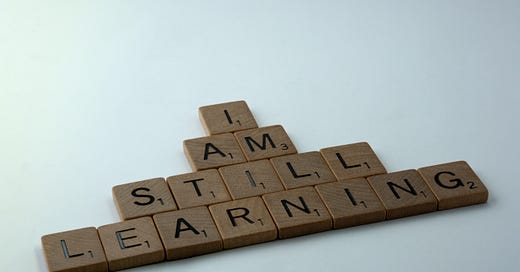When I first started coaching professionals, entrepreneurs and executives, I delivered value just by helping them improve their skills in areas such as teamwork, speaking up, gravitas, and productivity. These were practical, targeted tools, frameworks and techniques that they could practice and hone to make their own. A robust intellectual and pragmatic connection would form between us during the coaching. This approach was comfortable for all involved.
But gradually, as I experimented and developed as a coach, I found that a higher level of trust would form, leading to a deeper connection during the coaching partnership in addition to the intellectual one.
Sometimes the deeper connection from our trusting partnership added to the intellectual and pragmatic connection would combine to create an unexpected result.
At the time, the experience would feel remarkable, a flow-like state for both my clients and myself. They would do profound thinking, gain deep insights, and elevate their self-awareness. On occasions, I would be surprised by how much they would reveal but comforted that they had fully bought into the confidential and trusting partnership and progressed so far. In these coaching sessions, we were unpicking the real reasons they could not overcome an obstacle or make the changes they agreed were necessary to move forward.
And yet, the very clients who'd shared such personal revelations and expressed their surprise in gaining such insights would sometimes disappear and be challenging to follow up with. Having reached such extraordinary depth and having made so much progress, I expected them to be eager to continue. It wasn't until I described this situation to my coaching supervisor that I understood where my error lay.
Paraphrasing my supervisor, "Of course they are difficult to reconnect with. During the session, you created a space for them that took them somewhere, so they shared much more than they normally would and went much further than they had planned."
I was thinking of one client in particular who I had taken to supervision more than once already. This explanation was a perfect fit for our most recent experience. Our time together initially focused on practical skills and techniques to better control their focus and schedule. We rapidly co-created experiments and changes to how he worked and engaged with people. Yet after several sessions, we had stalled and found ourselves going back over the same things. At this point, I probed more deeply than before using the Immunity To Change framework. We explored his competing commitments and that, actually, he was committed to not upsetting people - hence why he found it difficult to separate the person from the decision and say no to people. His self-awareness rocketed, and I thought we would double-click to explore further and identify the real change that was necessary. Alas, it was not to be. It was at this time I also came across this phenomenon described in the book "The Charisma Myth" by Olivia Fox Cabane. The author describes coming out of the coaching sessions: "A few hours later, they come out of the trance, their ego wakes up, realises how much they shared and how far they went, and moan 'Oh, what have I done?!'"
And the conclusion:
"Never take people deeper than they're ready to go. It's your job to not give in to the high, not to let them reveal more than they're ready for."
Sometimes as coaches, independent and confidential sounding boards, we need to slow people down when they're in the middle of this kind of experience. Speed isn't always helpful, especially when attempting to change and create new enduring behaviours.
📫 - Favourite quote
"Caffeine - the dose and the timing make the poison."
Matthew Walker
If it is currently after 2pm where you are, then I suggest putting down that half-drunk mug of coffee and letting it get cold. Caffeine has a half-life of approximately 6 to 10-hours and can reduce the amount of deep sleep you get each night by 20%. You have to usually age by about 15-years to provide that type of deficit in your deep sleep. 😯
🧐 - Newly discovered content of interest
Continuing on the sleep theme. I talked about the book "Why We Sleep" in my January newsletter. Consequently, one of my clients kindly shared this TED talk, so you get the headlines in a 19-minute video, just in case you prefer video over the written format.
Interestingly my client shared this when we were delving into their Hogan reports. One of the assessment scales is "LEARNING APPROACH", which sparked a conversation about the different ways to consume content, not limited to just the written format. This client prefers videos and audio. I like to mix it up with reading, podcasts (audio), and video - and the good news is we are spoilt for choice.
🧾 - An absorbing and insightful (short) read
Hands up ✋ who plays Wordle each day?
My wife loves Wordle, so much so that she continued to play the game on Valentine's day and didn't open her Valentine's day card until she had correctly guessed the word of the day, which was CYNIC. 🤣 Now, I am a big cynic regarding Valentine's day anyway, as the social pressure to conform is driven purely by the need to sell more things, and so I didn't mind... too much.
Anyway, here is a short piece on why scarcity is the secret sauce behind Wordle's success.
⚖ - Et cetera
Perhaps the following will provide insight and be of help with a problem you are currently facing:
Do you need a new perspective on a challenge you're struggling with?
Are you starting a new role and want to make a positive impact and quickly establish credibility?
My latest article is here - "How to ensure you spend your time on the most consequential decisions."
The RYSE Journal - 5* "Critical management tool" and 5* "Excellent practical self-coaching tool."
All the best, until next month.
Rob



